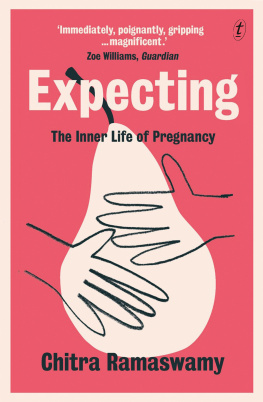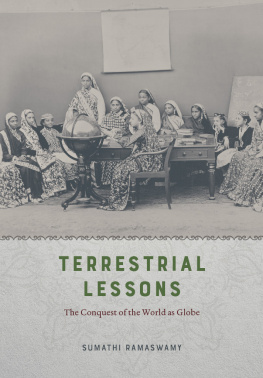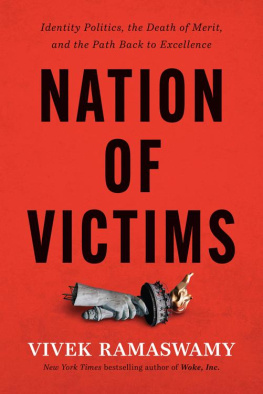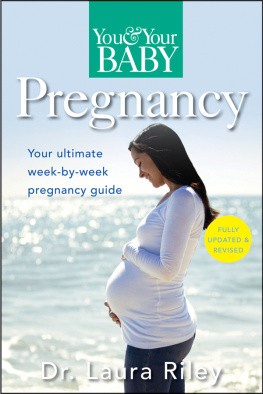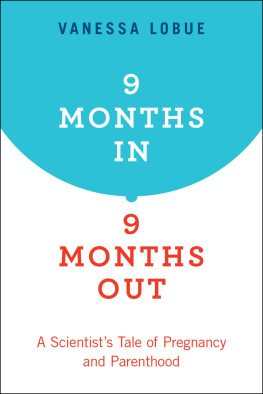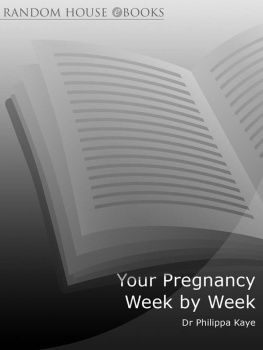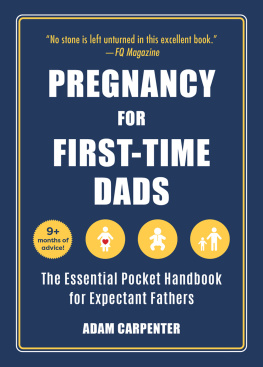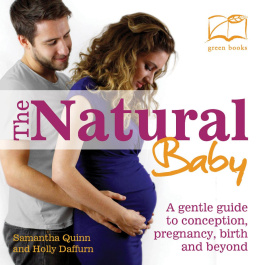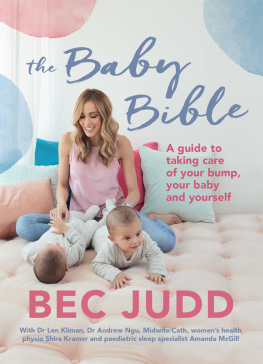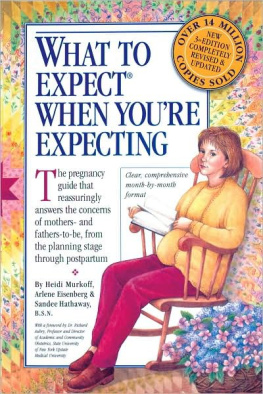WINNER, SALTIRE SOCIETY FIRST BOOK OF THE YEAR, 2016
Immediately, poignantly, gripping, the most unlikely detective story, when the whole universe knows the ending. Laconic and magnificent. GUARDIAN
Like spending time with a particularly wise and funny friend. [Ramaswamy] brings clarity of thought and expression to the human condition in all its messy complexity. Writing of great insight, humour and emotional intelligence. THE TIMES
[An] intelligent and intimate book The point of literature is that we can understand what we can never experience I found this poetic and polemical book moving and fascinating. SCOTSMAN
Insightful reflections complete honesty and great writerly panache. NATIONAL
Elegant, funny, brimming with acute observations and suffused with a gentle intimacy. Expecting combines a poets feel for language with a journalistic candour. GAVIN FRANCIS
A beautiful and oddly compelling history of the undocumented extraordinary drama of nine months All of life is here, oceans are crossed, fates decided, it bristles with love and terror and place, and has a spectacular, blood-splattered finale. An extraordinary book and a glorious read. DENISE MINA
This is an extraordinary book Sort of the New Nature Writing not simply with the human, the female body, but with [the authors] body as the subject it is not ordinary to write so well, so richly about so ordinary an event. Lovely. SARA MAITLAND
My favourite kind of writer one whose humanity is evident in her work she writes with great humour, compassion, honesty and thoughtfulness. Chitra understands people, and I always feel I understand them a little better for having read her. PETER ROSS
Chitra Ramaswamy is an award-winning journalist. She cut her teeth at the Big Issue before moving to the Scotsman and Scotland on Sunday, where she became a leading columnist, book reviewer, interviewer and feature writer. Now freelance, Chitra writes for the Guardian, The Times, Lonely Planet Traveller and a number of other publications. She lives in Edinburgh with her partner, son and rescue dog. Expecting is her first book.
Contents
For my son, the one I was expecting all along
Im a riddle in nine syllables,
An elephant, a ponderous house,
A melon strolling on two tendrils.
O red fruit, ivory, fine timbers!
This loafs big with its yeasty rising.
Moneys new-minted in this fat purse.
Im a means, a stage, a cow in calf.
Ive eaten a bag of green apples,
Boarded the train theres no getting off.
Metaphors, Sylvia Plath
Im a cloud, congealed around a central object, the shape of a pear, which is hard and more real than I am and glows red within its translucent wrapping. Inside it is a space, huge as the sky at night and dark and curved like that, though black-red rather than black. Pinpoints of light swell, sparkle, burst and shrivel within it, countless as stars.
The Handmaids Tale, Margaret Atwood
Send us, bright one, light one, Horhorn, quickening and wombfruit. Hoopsa, boyaboy, hoopsa!
Ulysses, James Joyce
But the beginning of things, of a world especially, isnecessarily vague, tangled, chaotic, and exceedingly disturbing. How few of us ever emerge from such beginning! How many souls perish in its tumult!
The Awakening, Kate Chopin
An unremarkable Sunday morning in November. A noirish time of year when natures reel turns monochrome and the world becomes as smudged as old newsprint. Sombre November, as TS Eliot called it. The last gasps of another year. On the morning dog walk the leaves were pockmarked from an excess of autumn and had lost their florid complexion. They were beginning to blacken now and stick to my shoes as though slick with a thin layer of oil. It was the eleventh month of the year, though Novem means nine for it was the ninth month in the Roman calendar. Nine months. A clue dropped by a season, like so many leaves.
And so with all this promise of death I found myself taking a test proposing life. A frightening test, though perhaps there is no other kind. A test taken by oneself in the privacy of ones own bathroom towards the end of another year. A test whose result is revealed not by a mark on a page but by a stream of ones own bog-standard urine. A test for which there are only two results. Either life is there, burrowing in a place as close to you as your own heartbeat yet as mysterious as the inside of a mountain, or it is not and life, the other kind, goes on. How very simple. And how brutal too.
Like however many millions of women before me and who knows how many in tandem, I squatted, hovered, took aim and waited for a blue cross to materialise in a tiny window of possibility. I had done this a few times in my life. In Glasgow in my early twenties when my partner at the time had just moved to London and I felt vengeful and very alone. The result? Relief. Or more recently in Soho, in one of the new breed of budget design hotels characterised by receptions without people and rooms without windows. That time? Disappointment. On both these occasions, the result had been negative. Life, the other kind, had gone on.
This time was different and as is often the case with major moments, I knew before I knew. I had eaten oysters twice in the previous week unusual in itself and almost wilful in retrospect and felt seasick as each sup slid down my throat. I had drunk whisky, smoked roll-ups and sung along to the Proclaimers in Edinburghs The Port O Leith, which in its own salty way is no less glamorous than sipping Bellinis in Venice or going for bagels in New York. The Porty, as its known to locals, is an icon of Leith on my street, with its skew-whiff nautical decor and rousing nightly rendition of Sunshine on Leith when last orders are called. But instead of feeling the euphoria that comes from belting out sorrrrroooowwww with the bonfire of Laphroaig on my breath and the scent of the Firth of Forth on the air, I felt jittery. Five days previously, there had been a small rusty mark on a pair of pants, a question mark written in blood. It was enough of a hint for me.
And yet I had cause to doubt what is known in the business of trying to conceive and one soon discovers that it is first and foremost a business as an implantation bleed. That is, the moment when the ball of cells that goes by the dramatic name of a blastocyst burrows into the wall of the uterus, the most minuscule of plants taking root and making the ground shed tears of blood in response. Little blastocyst blasting its way into the world, so small and uncertain it has yet even to become embryonic.
My partner and I had been trying to make this everyday miracle happen for almost eighteen months. It had not been easy for us. We were two women for a start. The story was the kind of romantic comedy that would never get made, with all the madcap races across cities and highly charged encounters in hotel rooms you might expect. Stories that were good for dinner parties but bad for life. We had already done so much. Our preparation had been flawless; all we lacked was an outcome.
To start, a civil partnership to ensure we would both be the parents of a baby that might never be, a leap of faith that no heterosexual couple is required to make. Bizarrely, this needed to take place not just before birth but before conception, making the most private of acts a matter of public interest from the outset. And so it went on. Three donors and three corresponding excruciating encounters up and down the country. Home insemination kits bought off websites with deflating names like prideangel and fertilityzone. Blood tests at the GPs to ensure I was fertile. Dispiriting monthly trips to buy yet more ovulation tests, cruelly addictive (and expensive) little sticks that so resembled pregnancy tests I began to feel dumbly thrilled when they showed up positive. Then a growing obsession with donor profiles on international cryobank sites, where you can buy sperm by the syringe and have it delivered to you in a hissing nitrogen tank, which if nothing else sounds like the birth of a post-modern superhero. And finally, a number of exchanges in a series of hotels with neither windows nor souls.

